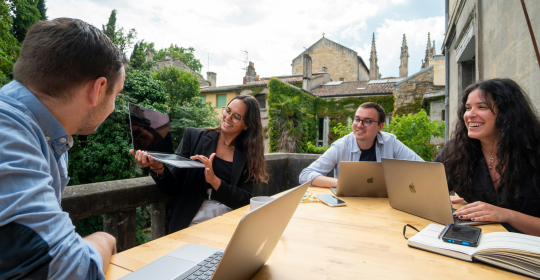Over the past year the topic of the generational mix of the workplace has started to become a focal point of my conversations. Not only at work, but also with those of my friends who have Generation Z children.
Everyone knows that younger people are entering the workforce with differing perspectives to previous generations about what work means to them, and with new demands of their employer. Whether old or young, people want to have meaning in the job they do. However, for the younger generations I think that balancing work with their personal life, and the feeling that they are impacting the world in a positive way, is increasingly becoming more and more important. Previous generations had that balance the other way round, with many of them finding that their jobs were their lives. Climbing the ladder one rung at a time and progressing steadily over time was the expectation.
With these varying wants and needs across generations, organisations must ensure that the career pathways, reward systems and working practices that they offer cater to an increasingly divergent range of aspirations and expectations within the workforce. So, what can HR do to deal with this?
Get your mentoring programmes right
Mentoring programmes have been used by companies for years and have historically gone one way, whereby experienced employees are engaged to help mentor younger employees who are new to the world of work, or people who are looking to progress their career. But as the balance of workplace seniority shifts, it’s important that the multiple-generations find common ground in order to promote a harmonious and productive organisation. Some HR teams are achieving this by changing the mentoring programmes they offer to their employees.
For example, we are seeing many organisations implement a culture of reverse mentoring, where younger workers share their knowledge with older employees. In this scenario, millennial workers might be able to demonstrate how to use tech to gather resources and data, enabling the more mature workers to become increasingly productive and proficient in their positions.
Taking the approach to run mentor programmes both ways will not only help to bring the diverse range of generations together in the workplace but also quickly develop the skills of all employees who take part.
I believe mentoring programmes are essential to the success of a business especially when retaining employees and developing talent and it seems I’m not the only one. A study from PGi found that 75% of millennials not only want mentors but deem it crucial for success and 70% of non-millennials say they are open to reverse mentoring, so it would seem that all the generations agree.
Roll out flexible working to all employees
One of the main changes in our working lives appears to be flexible working, facilitated by the advancement of technology and the shift toward a more global business world.
In relation to the new generation coming through, it has been highlighted that millennials and Generation Z want more of an opportunity to work flexibly, anywhere, at any time, to suit their personal needs. The good news is that HR professionals are recognising that flexible working will be a necessity in the future: our latest Workforce Horizons report found that 92% believe that flexible working will be key to attracting new talent by 2025.
Although flexible working can be a useful tool in attracting the right talent to your business, it is not the answer to all challenges. There are many roles for which flexible working simply wouldn’t work; I know from my own experience that I have built stronger bonds with those that I have shared an office with than those that I have merely shared a company with. It will be interesting to see how companies overcome that challenge.
That said, organisations do need to get better at providing the tools and support for flexible working. Giving the relevant employees the choice, and tools, to work in a way that suits them, is very important: from access to IT systems outside of the office, to better online communication tools. Getting this right will greatly improve the satisfaction of the workforce, and therefore the productivity, as well as having significant cost benefits through less need for physical office space.
What does the future have in store?
This is an exciting time for HR and resourcing. While some could perceive five generations under one roof as an obstacle, it is actually a great opportunity for teams to harness a diverse range of perspectives and skills, in order to boost productivity and business outputs. The important thing is to not dwell on the differences of a multi-generational workforce – focussing on the individual skills and outputs, irrelevant of their age or experience, is key
Those organisations that fail to effectively manage the multigenerational workforce could find themselves losing out on top talent, who will leave in favour of workplaces that can meet a diverse variety of needs.
I personally think this is the biggest difference between my parents’ generation, my generation and millennials/Gen Z. The younger generation are so much more aware of what they are entering into and how much hard work is required to succeed. Employers, and HR teams in particular, must take all of this on board in order to create a harmonious workplace for all generations and boost productivity for the business.






